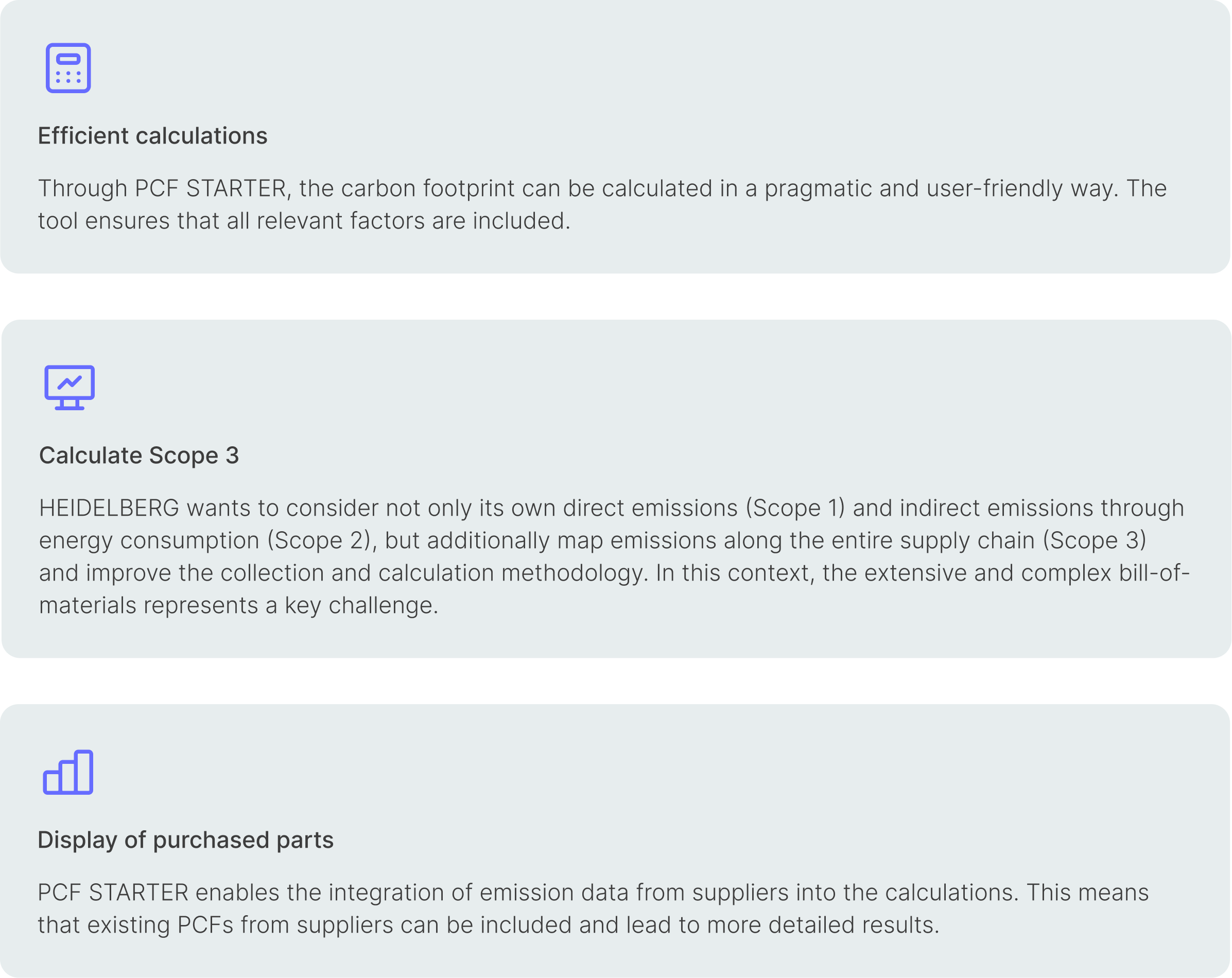Heidelberger Druckmaschinen — successful determination of carbon footprints with PCF STARTER

HEIDELBERG is a leading company in precision engineering and is known worldwide as a manufacturer of sheetfed offset presses and solutions for the print media industry. The long established company has committed to climate neutrality (Scope 1 and 2, excluding Scope 3) at all its production, development and sales sites by 2030. HEIDELBERG has already been determining the carbon emissions of its products since 2012. Due to the growing importance of the topic and the expansion of the product portfolio in the area of “printing” and “industries” (e.g. products made of iron casting, turned and milled parts, etc.), HEIDELBERG wants to understand the emissions occurring at the product level along the entire supply chain even better and derive further reduction measures based on this.
The complex supply chain with many purchased parts has so far posed a major challenge for the calculation of emissions at product level.
In addition to the carbon emissions for Scope 1 and 2, HEIDELBERG also collected and reported Scope 3 emissions for the first time in fiscal year 2023. These are caused in the supply chain upstream primarily by energy-intensive materials such as steel and plastics, purchased electronic components, or transports. By calculating product carbon footprints (PCF), it is possible to track how many carbon emissions are caused by the products and how these are distributed among the various process steps and components.
Main needs

PCF STARTER provides an adequate and pragmatic overview of the product carbon footprints
HEIDELBERG had already determined the carbon footprint for some of its products, providing a good basis for testing PCF STARTER. HEIDELBERG compared PCF STARTER results with their existing life cycle analysis (LCA) for the Amplified Wallbox, finding very similar hotspots for greenhouse gas emissions.
Main needs


What is PCF STARTER?
The PCF STARTER is a pragmatic calculator that enables users to quickly and easily generate an initial calculation of a specific product’s carbon footprint and identify key emission hotspots. The calculation focuses on the cradle-to-gate phase of the product life cycle and follows a hybrid approach: it combines top-down allocated emissions from energy consumption in production with bottom-up emissions based on material data (bill of materials). An additional transport factor is also included. This makes the PCF STARTER particularly well-suited for products whose emissions largely stem from energy use and materials.
The methodology is based on the VDMA Guideline for Calculating PCFs in Mechanical and Plant Engineering as well as the ISO 14067 standard.
As planned, the PCF STARTER offering has ended on June 1, 2024. However, for VDMA members who are still interested in software solutions for PCF calculations, there is a seamless transition: the PCF Module by Tanso, developed further based on feedback from PCF Starter users and significantly enhanced through €2.5 million in innovation funding from the European Union.

.avif)


















.avif)







.jpg)
.jpg)




















-p-800.webp.avif)
-min-p-800.webp.avif)






-p-800.webp.avif)

